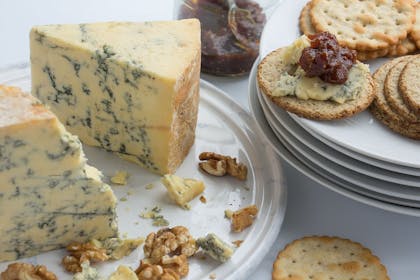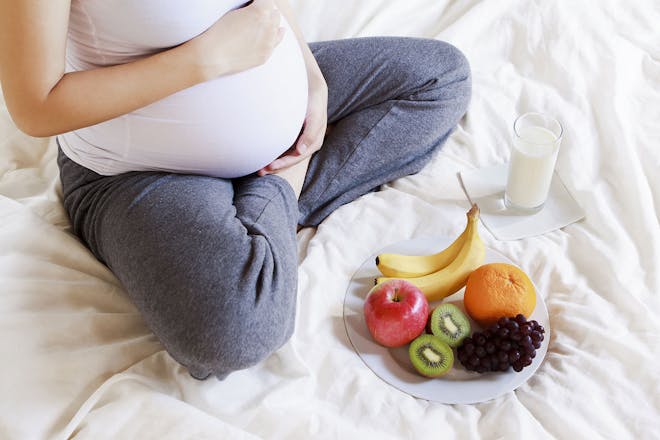Can you eat blue cheese when pregnant?

This page contains affiliate links, which means we may earn a small amount of money if a reader clicks through and makes a purchase. All our articles and reviews are written independently by the Netmums editorial team.
Find out if it's safe to eat blue cheese during pregnancy, plus precautions to take to keep you and your baby healthy.
The official advice on eating blue cheese in pregnancy
If you want to eat blue cheese when you're pregnant, you should check what type of blue cheese it is. Hard blue cheeses are safe to eat when pregnant, while soft blue cheeses should only be eaten when cooked.
Hard blue cheese
Hard blue cheese like Stilton is safe to eat.
FREE NEWBORN NAPPIES
The NHS says that all hard cheeses, such as Stilton and Cheddar, are safe to eat when you're pregnant. This is because hard cheese contains less water than soft cheese, so bacteria are less likely to grow.
Soft blue cheese
You should avoid soft blue cheeses such as Danish blue, Gorgonzola and Roquefort unless they're cooked until they're steaming hot. Soft blue cheese can contain a type of bacteria called listeria, which can increase the risk of miscarriage or health problems for your baby.
The NHS says that soft blue cheeses that are thoroughly cooked through are safe to eat, though. That's because cooking kills off the listeria bacteria.

Delicious cheese recipes
Love cheese? Why not try one of these great pregnancy-safe recipes?
- Blue cheese and bacon pasta (if using gorgonzola, add it earlier in the cooking time, to give it a chance to cook through)
- Broccoli and Stilton soup
- Spicy cheese dips
- Cheese and potato whirls
- Pear and Stilton salad jars
We like The Whole 9 Months, a week-by-week pregnancy nutrition guide, packed full of recipes and medical advice. See more details here at Amazon.
Looking for more pregnancy diet info? Check out our articles below, or swap tips with other mums-to-be in our forum.
Related stories
What to eat and drink during your pregnancy
Your complete A-Z of pregnancy food and drink safety
This article contains affiliate links, which means we may earn a small amount of money if a reader clicks through and makes a purchase. All our articles and reviews are written independently by the Netmums editorial team.





